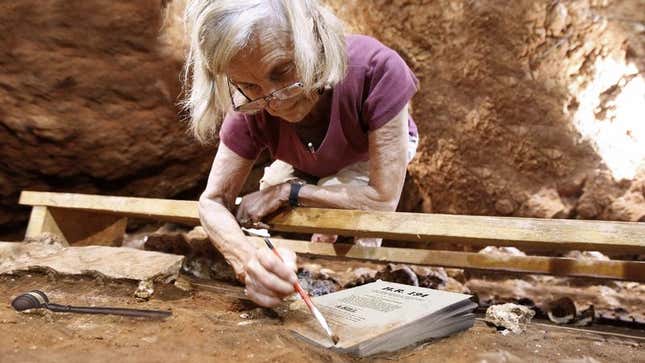
WASHINGTON—In a significant discovery that sheds new light on the region’s history, archaeologists excavating a site on Capitol Hill reportedly unearthed evidence this week suggesting that humans once passed laws there.
The team of researchers from the University of Maryland confirmed that it collected a wealth of writing implements and ancient documents, which appeared to indicate that, in earlier ages, approximately 500 humans assembled at a centralized location and worked as a group, with the apparent goal of creating a system of rules designed to govern behavior.
“Our finding that early inhabitants used to work toward the common objective of improving society through formal, cooperative efforts completely changes what we knew about the Washington D.C. region,” said lead archaeologist Peter Douglas, who expressed admiration for the sophisticated, self-sufficient civilization that once flourished along the banks of the Potomac River. “In fact, based on the sheer number of artifacts that we’ve unearthed, it appears this practice of law-crafting may have been their primary livelihood.”
“Apparently, these individuals engaged in this unusual behavior every day for years and years—it was just a normal, routine part of their lives,” added Douglas. “It’s remarkable to think that, for generations, thousands of laws were passed right where we’re standing.”
Archaeologists reportedly recovered more than 2,000 artifacts from the scene, including reams of yellowed parchment that bear such enigmatic phrases as “annual budget,” “joint resolution,” and “Civil Rights Act.”
Harvard University’s Vance Yeager, a paleolinguistics expert who examined the documents and attempted to reconstruct the past ways of life in Washington, told reporters that the evidence points to an extraordinary yet apparently common ritual in which early leaders who held opposing viewpoints engaged in a standardized routine of communicating, offering mutual concessions, and then moving together on an idea called an “agreement” that occupied some sort of middle ground between their two initial visions.
“It’s truly impressive when you stop and actually imagine that there once existed an entire culture devoted to doing little else aside from passing laws,” said Yeager, adding that the early regional inhabitants evidently employed their unconventional customs in an effort to improve nearly all aspects of their civilization, from reforming their organizational structures, to upgrading their facilities, to living comfortably within their means. “What’s even more striking is that this peculiar activity went on uninterrupted for years without their complex system ever halting or ceasing to function. It’s nothing short of astonishing.”
Despite what appear to have been generations of prolific law creation in Washington D.C., researchers said that the complete lack of any relics from more recent years confirmed that the practice seems to have died out suddenly and without any explanation.
“Our team has carefully cataloged and studied all of the artifacts that were excavated, but we are still unable to explain why the social structure fell out of favor and disappeared from the area,” archaeologist Jennifer Bloch said. “Perhaps the tragic decline of this once-common human activity was the result of a major conflict, a radical generational shift, general malaise, or a conquering band that invaded the region and displaced the practitioners of this curious and remarkable lawmaking culture.”
“All we can say for certain is that this ancient practice appears to have been lost to the ages,” Bloch added.